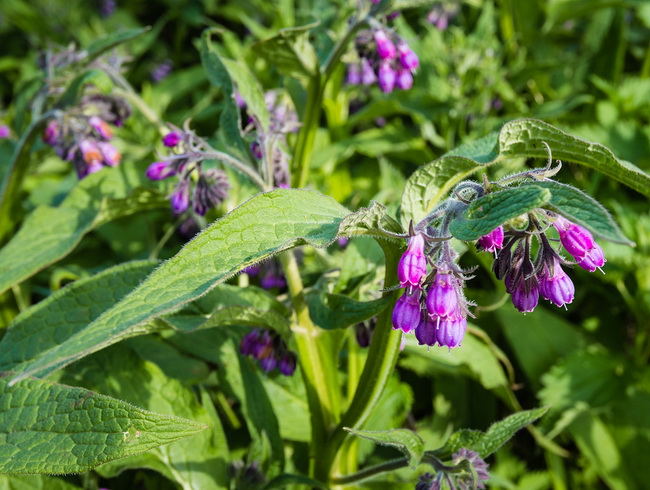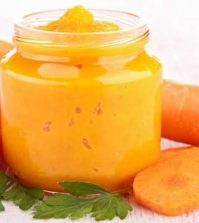- Make It Yourself Lavender Heart-Shaped Bath Bombs!
- 20 Things You Never Knew About “Down There”
- 12 Best Foods For Those Suffering From Arthritis Pain
- 12 Personal Hygiene Mistakes Almost Everyone Makes (Mom Never Told You About #4!)
- 15 Medicinal Plants And Herbs From The Cherokee People
- 12 Mind-Blowing Benefits Of Drinking Coconut Water During Pregnancy
- 12 Outstanding Winter Foods That Won’t Fatten You Up Like A Christmas Turkey
15 of the Best Herbs Ever for Eczema Relief

Photo credit: bigstock.com
11. Comfrey
This herb is well-known for its healing properties and the roots from comfrey are especially effective for those fighting eczema. The active ingredient in comfrey is called allantoin, which is known for its ability to greatly accelerating skin or wound healing. Applied directly on the skin, comfrey leaves can prevent infection and minimize scarring. Allantoin is known to be an effective way to keep the skin surface soft and smooth.
Comfrey also contains large amounts of vitamin A, which is also known to help relieve the symptoms of eczema, such as the dryness and itchiness. Chop up comfrey leaves and mix them with some olive oil. Apply this mixture to the affected areas twice each day.
12. Gotu Kola
Sometimes called Indian Pennywort, gotu kola is well-known for its anti-inflammatory, antioxidant, and diuretic compounds. This makes gotu kola an excellent herb for fighting eczema. Long used by Indian, Asian, and Chinese cultures for treating various skin problems, gotu kola leaves are boiled in a small amount of water until the water level is reduced by half. Drain to remove the leaves, add some sweet almond oil to the infused water and allow to cool. Apply this oil to the affected area for super eczema relief. Gotu kola also contains triterpenoids, which increase the flow of blood to the skin surface, which helps wounds to heal faster as well as strengthening the skin.
13. Copaiba balsam
Copaiba balsam is a wonderful herb that is super effective when treating skin problems. This herb contains disinfectant, anti-fungal, analgesic, diuretic, anti-inflammatory, antibacterial, antiseptic, and germicidal compounds. Native to Brazil, copaiba balsam is a yellowish brown color and has a pleasant, earthy type of smell. This herb has been used for thousands of year for the treatment of psoriasis, eczema, tetanus, and infections.
14. Cleavers
Cleavers goes by several other names including sweet woodruff, catch weed, or goose grass. Cleavers is a terrific herb for eczema. Making a strong tea out of cleavers, you can use it to wash the skin to help heal wounds and improve the overall skin tone. Researchers say that cleavers can remove waste and toxic substances from the body and this appears to help those who suffer from eczema. Using the tea as a skin wash can help relieve the symptoms of eczema such as dryness, itchiness, cracked skin, and blisters.
SEE ALSO: 15 Weird and Unusual Home Remedies That Really Work
15. Oatmeal
Although there have been no clinical studies done on the use of oatmeal, generations of clinical experience will testify to the soothing effect this has on the skin. Simply put, about 8 ounces (1 cup) of oatmeal in a coarse cloth bag and tie it closed. Place the bag under the running water in the tub. The water will look a bit milky or opaque but that’s normal. Once the tub is full, place the bag in the water while you soak. Soaking in this oatmeal infused water for at least 20 minutes will go a long way towards relieving the symptoms of eczema.
Extra Tip: Sometimes, conventional dairy products cause eczema to flare up. Try cutting back on dairy products and eat more organic fruits and vegetables. You might also want to include more ginger, turmeric, and other anti-inflammatory herbs and foods to help heal your eczema from the inside out.
Always consult your physician before consuming any herbal products, especially if you are taking prescription drugs or if you are pregnant.
References:
































